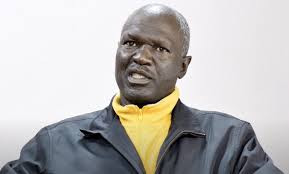
THE Commercial Farmers Union of Zimbabwe (CFU) this week elected Liam Philp (pictured) as its new president, bringing to an end the turmoil in the group since the initial elective congress was aborted in November last year.
The lobby group expected to elect the new leadership last year but abandoned the process after alleged breaches to its constitution in the lead up to the congress.
The polls were eventually held on Wednesday this week, with Philp replacing Andrew Pascoe as president as farmers sought a new direction for the organisation.
CFU represents mostly white large-scale commercial farmers who lost their land under the late President Robert Mugabe’s controversial fast track land reform programme.
Pascoe led the group to the landmark US$3, 5 billion compensation agreement with government under the Global Compensation Deed in July 2020.
Farmers were supposed to receive 50% of the compensation after a year and the balance within five years. However, the Zimbabwe government has so far only made two token payments and introduced another framework called the Farmers Compensation Agreement (FCA), which provides for compensation through 10 year TBs.
The majority of farmers are against the arrangement, and are joining the Southern African Agri Initiative (SAAI) which is lobbying for the rejection of the FCA.
Philp’s election came after CFU’s lawyers lobbied for fresh polls citing breaches of the group’s constitution in the run up to the abortive elections last year.
- Treasury Bonds to fund 90% of US$3,5bn debt to white farmers
- Expelled white farmers reject govt’s TBs compensation deal
- Supreme Court rules in favour of Chivayo
- CFU elects new president to calm restive white farmers
Keep Reading
In a paper dated December 7, 2023, Daniel Tivadar, the CFU’s legal counsel, said the election of a new president should have taken place after the congress.
“The president should have been elected immediately after the congress. This was not done. To this extent, the constitution was not observed. Similarly, the Electoral College was intended to be more numerous that it currently is,” Tivadar wrote in a legal opinion to CFU.
“Irrespective of the above breaches, the CFU should elect (of re-elect) its president as soon as possible. This is because annual election of the president is a key feature of constitution. I recommend that the constitution be reviewed as a matter of urgency with a view of amending it at a congress, if needed, so as to reflect the current realities of the CFU.”
Some officials said the failure to hold the election may have been caused by the absence of the lobby group’s director, who was unwell at the time.






